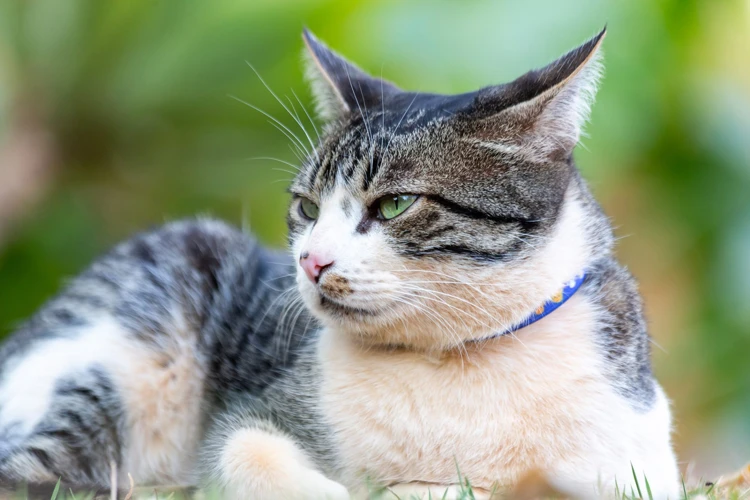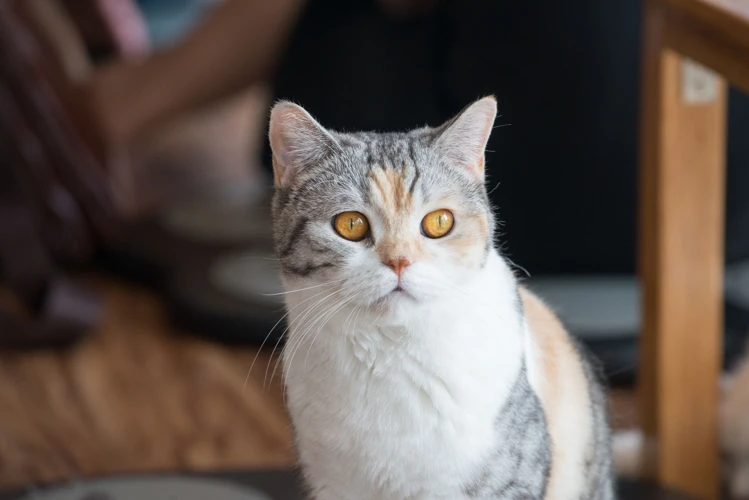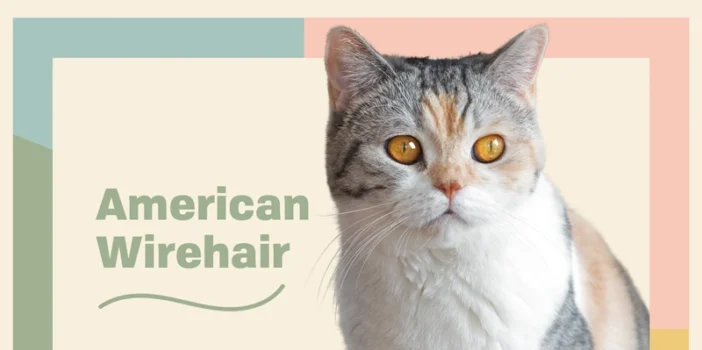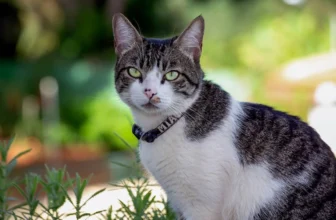As a cat breeder, one of your top priorities should be maintaining the health of your feline companions. When it comes to American Wirehair cats, there are a few health issues that are more common in this breed than in others. While it’s impossible to completely prevent disease, there are steps you can take as a responsible breeder to ensure that your cats are as healthy as possible. In this article, we’ll highlight some of the most common diseases to look out for when breeding American Wirehair cats, as well as steps you can take to prevent illness and maintain your cat’s health.
Health Issues Common to American Wirehairs

It’s important for every American Wirehair cat owner and breeder to be aware of the potential health issues that their cats may face. Although the American Wirehair is generally a healthy breed, there are certain diseases that are more prevalent than others. As a responsible breeder or owner, it’s essential to be knowledgeable about these issues and take the necessary steps to prevent them. In this section, we will discuss some of the most common health issues to look out for in American Wirehairs and how to best care for your furry friend. For more information on responsible breeding and selecting a breeding pair, visit our page on selecting a breeding pair for American Wirehairs.
Hypertrophic Cardiomyopathy
Hypertrophic Cardiomyopathy, commonly known as HCM, is the most common type of heart disease in cats. This disease affects the structure of the heart muscles, leading to a thickening of the left ventricular wall. As a result, the heart has to work harder to pump blood, which may eventually lead to heart failure. HCM is prevalent in American Wirehairs and is a hereditary disease, which means it is passed down through genes.
Symptoms of Hypertrophic Cardiomyopathy
Early stages of HCM in American Wirehairs can often go undetected, which is why regular health check-ups are essential. Some of the common symptoms of HCM include:
- Difficulty breathing
- Fainting or collapsing
- Abdominal distension
- Lack of coordination or unsteadiness
- Loss of appetite
It’s important to note that these symptoms don’t necessarily indicate HCM, but if you notice any of these signs, it’s crucial to schedule an examination with a veterinarian.
Diagnosis and Treatment of Hypertrophic Cardiomyopathy
If you suspect your American Wirehair has HCM, consult with a veterinarian who will perform appropriate tests for diagnosis. These include a physical examination, urine and blood tests, and imaging tests such as an echocardiogram or electrocardiogram.
If diagnosed with HCM, the treatment options may depend on the severity of the disease. Treatment options include medication to manage the symptoms and complications, lifestyle changes, and in severe cases, surgery. Unfortunately, there is no cure for this disease, but early detection and treatment can help manage the condition and extend your cat’s life.
Preventing Hypertrophic Cardiomyopathy
As mentioned earlier, HCM is hereditary, so responsible breeding practices can help reduce the risk of this disease. American Wirehair breeders should conduct genetic testing and avoid breeding cats that carry the HCM gene.
Pet owners can also help prevent HCM in their American Wirehairs by providing a healthy diet, regular check-ups, and a stress-free environment.
If you are a breeder, it’s crucial to be aware of the potential health issues in American Wirehairs, including HCM. By prioritizing responsible breeding practices and conducting appropriate genetic testing, you can increase the chances of breeding healthy cats while helping to reduce the risk of HCM in this breed.
Conclusion
Hypertrophic Cardiomyopathy is a serious health issue that can affect American Wirehairs. It’s essential to be aware of the symptoms and risk factors, schedule regular check-ups with a veterinarian, and take preventive measures to reduce the likelihood of your cat developing HCM. Breeding healthy American Wirehairs with responsible breeding practices and genetic testing is crucial in reducing the risk of this disease in future generations.
PolyCystic Kidney Disease
PolyCystic Kidney Disease (PKD) is a genetic disorder that affects the kidneys of American Wirehair cats, and it can lead to renal failure if left untreated. PKD causes cysts to form on the kidneys, which can eventually cause the kidneys to malfunction. This condition can be inherited from either parent and is more common in some cat breeds than others, including the American Wirehair.
What are the signs of PolyCystic Kidney Disease in American Wirehair cats?
PKD is typically asymptomatic in its early stages, so it’s important to screen for this disease in breeding cats before they mate. Advanced-stage PKD can be characterized by symptoms such as:
- Weight loss
- Vomiting
- Decreased appetite
- Increase in thirst and urine output
- Weakness and lethargy
- Poor coat quality
How can PKD be diagnosed in American Wirehair cats?
PKD can be diagnosed through ultrasound imaging of the kidneys. This is a non-invasive procedure that allows a veterinarian to examine the kidneys for cysts. Kittens can be screened for PKD as early as 10-12 weeks old.
Is there a cure or treatment for PKD in American Wirehair cats?
Unfortunately, there is no known cure for PKD in American Wirehair cats. Treatment is aimed at managing the symptoms and preventing complications. In some cases, surgery may be required to remove cysts from the kidneys. Owners should work closely with their veterinarian to monitor the progression of the disease and adjust treatment as necessary.
How can breeders reduce the incidence of PKD in American Wirehair cats?
Responsible breeders should screen their cats for PKD before mating them to identify carriers of the gene. This can be done through genetic testing, which can identify cats that are carriers of the PKD gene. Breeding cats that are known carriers should be bred only to cats that have tested negative to reduce the incidence of PKD in future litters.
It’s important to note that PKD is just one of the many health issues that American Wirehair cats can be prone to. If you’re considering breeding American Wirehair cats, it’s vital to do your research and work with a reputable breeder who is knowledgeable about the breed and takes steps to ensure the health and well-being of their cats. You can read more about responsible breeding practices in our article on responsible breeding of American Wirehairs.
Feline Lower Urinary Tract Disease
Feline Lower Urinary Tract Disease (FLUTD) is another common disease that American Wirehair cat breeders should be aware of. This condition encompasses a variety of urinary tract issues that can cause discomfort for your feline friend.
Symptoms of FLUTD include:
- Difficulty urinating
- Frequent urination
- Urinating in inappropriate places
- Blood in the urine
- Crying out during urination
- Excessive licking of the genital area
If you notice any of these symptoms in your American Wirehair cat, it is important to take them to a veterinarian for proper diagnosis and treatment. This is especially crucial for female cats, as they have smaller urethras and are more susceptible to blockages that can lead to serious health issues if left untreated.
To prevent FLUTD in your American Wirehair cat, it is important to encourage proper hydration by providing fresh water at all times and incorporating wet food into their diet. Avoid feeding your feline friend a diet that is too high in magnesium or phosphorus, as these minerals can lead to the formation of urinary crystals and stones.
Stress can also be a contributing factor to FLUTD, so it is important to keep your cat’s environment calm and free of any stressors as much as possible. Providing a clean litter box and making sure your cat has plenty of opportunities for play and exercise can help reduce their stress levels.
While FLUTD can be a challenging condition to manage, early intervention and treatment can help ensure your American Wirehair cat enjoys a happy, healthy life. For more information about breeding American Wirehair cats, check out our article on breeding success.
Preventing Disease in American Wirehair Cats

As a responsible owner, one of the best ways to care for your American Wirehair cat is to take steps to prevent diseases from occurring. By ensuring that your cat is in good health, you’ll be able to avoid many of the issues that can arise later on. There are several measures you can take to prevent disease in your American Wirehair cat, from regular check-ups to genetic testing, nutrition, hydration, and maintaining a clean, stress-free environment. In this section, we’ll delve into the specifics of how you can help keep your American Wirehair cat healthy and happy. For more information on breeding and caring for American Wirehair cats, check out our guide on American Wirehair breeding success.
Regular check-ups with a vet
Regular check-ups with a vet are crucial in preventing and identifying potential health issues in your American Wirehair cat. A veterinarian can catch health issues in their early stages, when they are much easier and more cost-effective to treat. During check-ups, the vet will conduct a range of tests, including blood tests, urine tests, and physical examinations. The vet may also recommend preventative measures such as vaccines or deworming medication.
To ensure that your American Wirehair cat is healthy, it is recommended that you schedule check-ups at least once a year. However, if your cat has existing medical conditions, you may need to schedule more frequent visits. These regular check-ups will provide your veterinarian an opportunity to detect any underlying health issues and devise a treatment plan to manage or cure them.
During vet visits, you should discuss any behavioral changes you have noticed in your cat since their last visit. Changes in eating habits, litter box use or overall behavior can be signs of illness, and catching any such changes early will help maximize the effectiveness of treatment.
If your cat is pregnant, it is especially important to schedule regular veterinary visits. You can track and learn more about American Wirehair cat pregnancy stages during these visits. These check-ups will ensure that the pregnancy is proceeding smoothly and your cat is healthy. A vet will have specific monitoring protocols to identify health problems that can occur during pregnancy. Early detection and treatment of pregnancy complications can ultimately result in a successful delivery.
Regular veterinary check-ups are important for breeders as well to ensure their breeding cats are healthy. As a breeder, your goal should be the successful breeding of genetically diverse and healthy American Wirehair cats. Before starting a breeding program, it is important to understand the genetics and inheritance of diseases that can be passed on from one generation to the next. Regular vet visits and genetic testing can help breeders make informed decisions about which cats to breed and which to remove from the breeding program.
Regular veterinary check-ups should be combined with the proper nutrition and hydration regime and keeping your cat’s environment clean and stress-free. By implementing these preventative measures, you will be able to provide your American Wirehair cat a healthy life and longevity.
Genetic Testing
One effective way to prevent common diseases and health problems in American Wirehair cats is genetic testing. Genetic testing is a crucial step in reducing the likelihood of inherited diseases in breeding programs. It is important for breeders to be aware of the inherited diseases present in the American Wirehair breed and to avoid breeding cats that carry these detrimental genes.
The following table shows some of the most common genetic tests performed on American Wirehairs:
| Genetic Disease | Description | Testing Procedure | Preventative Measures |
|---|---|---|---|
| Hypertrophic Cardiomyopathy (HCM) | A heart disease that causes the heart to thicken, making it difficult for blood to be pumped properly. | Ultrasound of the heart, genetic blood testing | Do not breed cats with the HCM gene; monitor diet and exercise to reduce symptoms in affected cats. |
| PolyCystic Kidney Disease (PKD) | A disease that causes cysts to form in the kidneys and can lead to kidney failure. | Ultrasound or genetic blood testing | Do not breed cats with the PKD gene; monitor diet, hydration, and provide regular veterinary visits to manage symptoms. |
| Feline Lower Urinary Tract Disease (FLUTD) | A condition that leads to inflammation of the bladder and/or urethra causing difficulty urinating and pain. | Urine analysis, complete blood count, diagnostic imaging | Provide proper nutrition, hydration, and stress-free environment; manage symptoms through medication and/or surgery if necessary. |
Doing genetic testing and choosing cats for breeding based on their genetic profile is a responsible and ethical practice that can help maintain the breed’s overall health. Breeders should also communicate with their clients and provide them with a health certificate of the American Wirehair kitten before selling.
Take note that genetic testing can be quite expensive but it is worth it in the long run to prevent a myriad of cat health issues and to produce healthier litters. Clients are more willing to pay for a kitten that are free of these genetic diseases.
Genetic testing is an important tool for breeders of American Wirehair cats to ensure the health of future generations. By using genetic testing along with other preventative measures, breeders can produce healthy offspring and maintain the integrity of the breed.
If you want to learn more about the American Wirehair breed, check out our article on American Wirehair coat colors or browse our breeder tips section for more information.
Proper Nutrition
A cat’s nutrition is crucial to maintaining their overall health, and proper nutrition can help prevent many common diseases in American Wirehair cats. It is essential to provide them with a balanced and nutrient-rich diet that meets their specific needs.
Types of Food: American Wirehair cats need a diet high in protein, and they should be primarily fed on a mixture of dry and wet cat food. Wet food is beneficial as it helps to keep them hydrated, while dry food helps to keep their teeth clean. It is also a good idea to supplement their diet with occasional treats.
Avoid Overfeeding: Overfeeding can lead to obesity, which can cause many health problems for your American Wirehair cat, including diabetes. To avoid obesity, it is recommended to feed your cat small portions throughout the day rather than one or two large meals.
Read the Labels: When selecting cat food, you should always read the labels to ensure they contain the right balance of nutrients. Look for high-quality proteins, including chicken, turkey, or fish, and avoid cat food that contains fillers such as corn or wheat.
Vitamin, Mineral, and Fiber: Your cat’s food should also contain essential vitamins, minerals, and fiber, which are all necessary for their overall health. The right combination of these nutrients can help protect your American Wirehair from diseases such as kidney disease, diabetes, and urinary tract infections.
Consult Your Vet: It is always a good idea to consult with your vet, who can provide you with advice on the best food for your American Wirehair cat based on their specific needs and health status.
By providing your American Wirehair cat with proper nutrition, you can help ensure they remain healthy and free from disease. Remember to always monitor their weight, avoid overfeeding, and consult with your vet regarding their specific dietary needs.
Hydration
Keeping your American Wirehair cat hydrated is essential for their overall health and well-being. Dehydration can lead to urinary tract problems, constipation, and other health issues. Here are some tips to ensure your cat stays hydrated:
- Provide fresh water: Make sure your cat has access to clean, fresh water at all times. Change the water frequently, especially during hot weather or if your cat prefers to drink running water from a fountain or tap.
- Feed wet food: Wet food contains more moisture than dry food, which can help keep your cat hydrated. If your cat prefers dry food, consider adding a small amount of water to it to increase their water intake.
- Use a water fountain: Some cats prefer drinking from running water sources, so a cat water fountain can encourage them to drink more water. The sound and motion of the water can be enticing for cats and may encourage them to drink more.
- Mix in low-sodium broth: Mixing a small amount of low-sodium broth into your cat’s water or wet food can make it more appealing and encourage them to drink more.
- Monitor their water intake: Keep an eye on how much your cat is drinking, and speak with your veterinarian if you notice a decrease in their water intake. This could be a sign of an underlying issue.
By following these simple tips, you can help ensure your American Wirehair cat stays properly hydrated, which is important in preventing a wide range of health issues.
Keeping the environment clean and stress-free
Maintaining a clean and stress-free environment is vital to the overall health of your American Wirehair cat. Stress can weaken your cat’s immune system, making them more susceptible to various illnesses. Meanwhile, an unclean environment can harbor harmful bacteria and other pathogens that can lead to infections and diseases.
To keep your cat healthy and happy, here are some tips to follow:
| Tip | Explanation |
|---|---|
| Regular cleaning | Clean your cat’s litter box daily and disinfect it weekly to prevent the buildup of harmful bacteria. Also, regularly clean any surfaces your cat frequently uses, such as their bed or play area. |
| Frequent washing of bedding and toys | Wash your cat’s bedding and toys regularly to eliminate dirt, dust, and other allergens that can cause respiratory issues or skin irritations. |
| Provide a calm and quiet environment | A noisy and chaotic environment can stress your cat. Ensure that your cat has a quiet place to rest and sleep. Also, try to keep their feeding and playtime schedules consistent to help them feel secure. |
| Reduce exposure to potential stressors | Avoid exposing your cat to aggressive or bullying animals. Also, try to avoid major household changes like moving, as they can be stressful for your cat. |
| Use pheromone diffusers | Consider using pheromone diffusers in your cat’s environment to help them feel relaxed and calm. |
By taking these simple steps, you can help create a healthy, clean, and stress-free environment for your American Wirehair cat. This can help prevent the onset of various illnesses and ensure that your cat lives a long and happy life.
Vaccinations
One of the most important ways to prevent diseases in American Wirehair cats is through vaccinations. Vaccinations provide immunity against a wide range of deadly diseases and infections that can cause serious health problems in cats. As such, it’s crucial to develop a vaccination schedule for your American Wirehair and to stick to it. Here are some of the most important vaccinations to consider:
- Feline Panleukopenia (FPV) – Also known as feline distemper, this viral infection is highly contagious and can be fatal in cats. Vaccination against FPV is recommended for all cats, including American Wirehairs.
- Feline Calicivirus (FCV) – This is a respiratory infection that can lead to sneezing, runny nose, and fever. Vaccination against FCV is recommended for all cats.
- Feline Rhinotracheitis (FHV-1) – This is another respiratory infection that can cause coughing, sneezing, and conjunctivitis. Vaccination against FHV-1 is recommended for all cats.
- Rabies – This is a deadly viral infection that can affect both cats and humans. Vaccination against rabies is required by law in many states, so make sure to check with your local laws and regulations.
- Feline Leukemia Virus (FeLV) – This is a viral infection that can suppress your cat’s immune system and increase the risk of developing other infections and illnesses. Vaccination against FeLV is recommended for cats who have a higher risk of exposure, such as outdoor cats.
It’s important to note that vaccination schedules may vary depending on your cat’s age and overall health. Your veterinarian can help you create a custom vaccination plan that is tailored to your American Wirehair’s specific needs. Additionally, it’s important to keep in mind that vaccinations are not a one-time solution, and you will need to follow up with booster shots periodically to ensure ongoing protection against diseases.
Taking Care of Your American Wirehair
Caring for your American Wirehair can be a rewarding experience, but it also requires dedication and attention to detail. As with any pet, it’s important to stay vigilant for signs of illness and to take proper preventive measures to keep your cat healthy. In this section, we’ll explore some best practices for maintaining your cat’s health and the importance of early intervention and treatment if your cat does become unwell. From recognizing signs of illness to providing proper nutrition and hydration, these tips will help ensure your American Wirehair leads a happy, healthy life.
Signs of Illness to Look Out For
Keeping an eye on your American Wirehair for signs of illness is critical to their health and well-being. Here are some common signs of illness to look out for in your cat.
| Signs of Illness | Description |
|---|---|
| Lethargy | If your cat is sleeping more, less active, or not interested in playing or interacting as usual, it could be a sign of illness. |
| Changes in appetite or weight loss/gain | If your cat has lost their appetite or is not eating as much as usual, it could be a sign of illness. Similarly, if your cat is eating more than usual or gaining weight rapidly, it could be another sign of illness. |
| Changes in litter box behavior | If your cat is not urinating or defecating as much as usual, it could be a sign of illness. Additionally, if your cat is urinating outside of the litter box, straining to urinate, or seems to be in pain during urination, it could indicate a urinary tract infection or other health issue. |
| Vomiting or diarrhea | If your cat is vomiting or experiencing diarrhea frequently, it could be a sign of illness or digestive issues. |
| Changes in behavior | If your cat is acting differently than usual, such as being more aggressive, fearful, or anxious, it could be a sign of illness or other underlying health problems. |
| Difficulty breathing or coughing | If your cat seems to be having trouble breathing or is coughing, it could be a sign of respiratory issues or heart problems. |
It’s important to note that these signs of illness can indicate a variety of health issues, ranging from minor digestive upset to more serious health problems like cancer or heart disease. If you notice any of these signs in your American Wirehair, it’s important to take them to a veterinarian as soon as possible for a thorough examination and proper treatment. Early intervention and treatment can greatly increase the chances of a full recovery and a healthy life for your beloved pet.
Best Practices for Maintaining Your Cat’s Health
Maintaining the health of your American Wirehair cat should be a top priority for any pet owner. Here are some best practices to help keep your pet healthy and happy.
| Practice: | Description: |
| Regular grooming | Regular brushing of your cat’s coat can help keep their skin and fur healthy. It can also reduce the likelihood of hairballs and other issues. |
| Proper diet | A balanced diet that meets all of your cat’s nutritional needs is essential for their health. Be sure to provide them with high-quality cat food and fresh water at all times. |
| Regular exercise | Just like humans, cats need exercise to stay healthy. Make sure your cat gets plenty of playtime and physical activity to prevent obesity and other health issues. |
| Clean litter box | Dirty litter boxes can lead to health issues such as urinary tract infections. Clean your cat’s litter box regularly to prevent these problems. |
| Quality sleep | Cats need plenty of rest and quality sleep to stay healthy. Make sure your cat has a comfortable bed and a quiet place to rest. |
| Regular check-ups | Regular veterinary check-ups can help detect health issues early and prevent them from becoming more serious. |
| Clean environment | Keep your cat’s environment clean and free of clutter. This can help prevent accidents and reduce stress, which can lead to health problems. |
| Keeping up with vaccinations | Vaccines can help protect your cat from common diseases. Keep up-to-date with your cat’s vaccinations to keep them healthy. |
By following these best practices, you can help maintain your American Wirehair cat’s health and ensure their well-being for years to come. Remember, early intervention is key when it comes to your cat’s health, so don’t hesitate to contact your veterinarian if you notice any signs of illness or discomfort.
The Importance of Early Intervention and Treatment
It cannot be stressed enough how important early intervention and treatment is when it comes to dealing with diseases in American Wirehair cats. Delaying treatment can often lead to further complications and increase the likelihood of permanent damage or even death.
To emphasize this point further, here is a table highlighting some of the potential consequences of delaying treatment for the common health issues faced by American Wirehair cats:
| Health Issue | Consequences of Delaying Treatment |
|---|---|
| Hypertrophic Cardiomyopathy | Heart failure, blood clots, sudden death |
| PolyCystic Kidney Disease | Permanent kidney damage, renal failure, death |
| Feline Lower Urinary Tract Disease | Urinary blockages, bladder infections, kidney damage |
As shown in the table, delaying treatment for these health issues can have severe consequences, underscoring the life-saving benefits of early intervention and prompt treatment.
It’s important to be vigilant and keep an eye out for any potential signs of illness or abnormal behavior in your American Wirehair cat. If you notice anything concerning, don’t hesitate to contact your veterinarian and schedule an appointment. Remember, the earlier the treatment, the better the chances of a full recovery.
Conclusion
In conclusion, it is clear that American Wirehair cats are not immune to health issues that can arise when breeding these beautiful felines. From Hypertrophic Cardiomyopathy to Feline Lower Urinary Tract Disease, it’s essential for pet owners to be aware of the signs and symptoms that can indicate a health problem. Prevention is key, and regular check-ups with a vet, genetic testing, proper nutrition, hydration, and a clean and stress-free environment can make a significant impact on your cat’s health and wellbeing.
As a responsible and loving pet owner, it’s crucial to keep a watchful eye on your American Wirehair, looking out for any unusual behavior or changes in physical appearance. When in doubt, it’s always better to err on the side of caution and seek professional advice from a veterinarian.
Taking care of an American Wirehair can be a rewarding experience, but it also comes with its set of responsibilities. By implementing the best practices for maintaining your cat’s health, you can ensure that your beloved pet enjoys a long, happy, and healthy life.
Remember, early intervention and treatment are crucial when it comes to your cat’s health. So, don’t hesitate to seek veterinary care if you suspect any health issues. By doing so, you can give your American Wirehair the best chance of living a healthy and fulfilling life.
Frequently Asked Questions
1. Can American Wirehair cats be prone to certain health issues?
Yes, American Wirehair cats may be at risk for hypertrophic cardiomyopathy, polycystic kidney disease, and feline lower urinary tract disease.
2. What is hypertrophic cardiomyopathy?
Hypertrophic cardiomyopathy is a heart disease that causes the walls of the heart to thicken, which can lead to heart failure and sudden death.
3. Is polycystic kidney disease common in American Wirehair cats?
Yes, polycystic kidney disease is common in American Wirehair cats. It is a genetic disease that leads to the development of fluid-filled cysts in the kidneys, which can eventually lead to kidney failure.
4. What is feline lower urinary tract disease?
Feline lower urinary tract disease is a condition that affects the bladder and urethra of cats. It can cause difficult or painful urination, blood in the urine, and even urinary blockages, which can be life-threatening.
5. How can I prevent disease in my American Wirehair cat?
You can prevent disease in your American Wirehair cat by scheduling regular check-ups with a vet, having genetic testing done, providing proper nutrition and hydration, keeping their environment clean and stress-free, and making sure they receive vaccinations.
6. What is genetic testing?
Genetic testing is a process that allows veterinarians to identify genetic diseases and mutations in cats. It can help determine if a cat is at risk for certain health conditions, and guide breeding decisions.
7. How can I maintain my American Wirehair cat’s health?
You can maintain your American Wirehair cat’s health by keeping up with regular vet check-ups, providing a balanced diet, keeping their environment clean and stress-free, and monitoring for signs of illness.
8. What are some signs of illness to look out for in my American Wirehair cat?
Some signs of illness to look out for in your American Wirehair cat include changes in appetite or water intake, lethargy or decreased activity, sneezing or coughing, vomiting or diarrhea, and difficulty urinating or defecating.
9. Why is early intervention and treatment important for my American Wirehair cat?
Early intervention and treatment can help prevent a health condition from progressing and becoming more serious, and can improve the overall prognosis and quality of life for your American Wirehair cat.
10. Are there any special grooming or care needs for American Wirehair cats?
American Wirehair cats have a unique wiry coat that requires minimal grooming, but may benefit from occasional brushing and bathing. They may also benefit from having their nails trimmed and teeth cleaned regularly.







